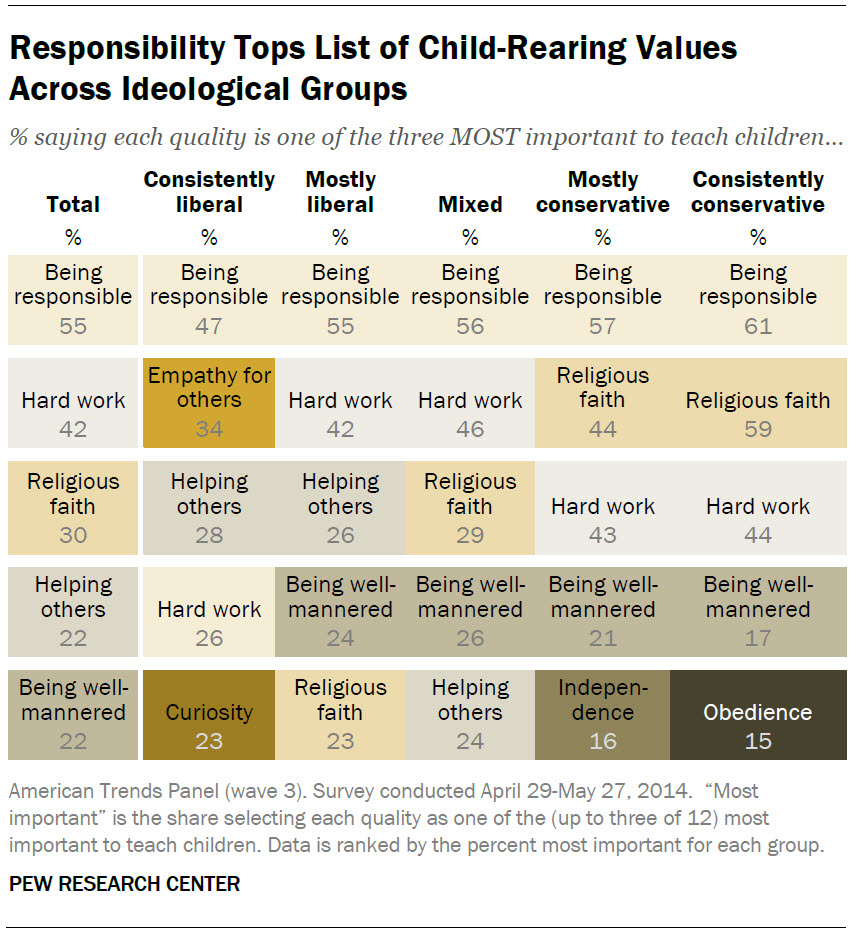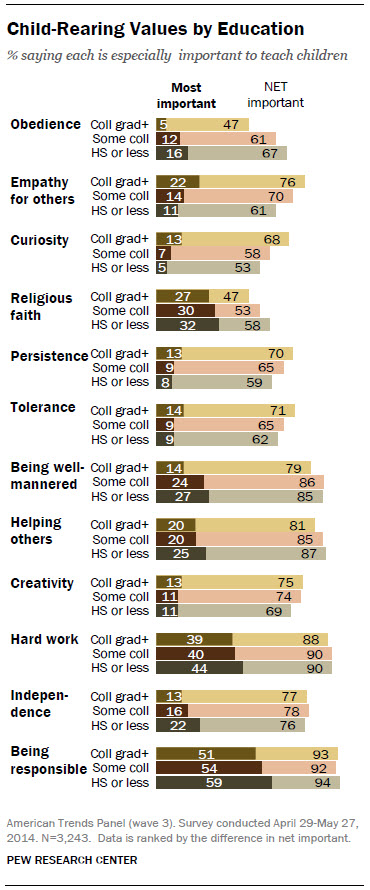
Responsibility. That’s what most parents list as the No. 1 quality they want their kids to have. No matter their age, race or political leaning, parents want kids who can be relied on. The ability to work hard also makes most parents’ wish list. After that, opinions begin to diverge quite markedly, with more conservative folks listing religious faith and more liberal types opting for helping others as the attribute they most want to their children to develop.
The results come from a new Pew Research study of parenting attitudes among a nationally representative sample of more than 3000 adults (Pew has convened a special American Trends Panel to poll regularly) who were asked about the relative importance of 12 values kids need to learn. They were also asked to list their top three. A full 93% said teaching children to be responsible is “especially important” and 55% rated it as one of their top three.
In order of most to least popular, parents ranked the relative importance of each attribute this way: responsibility, hard work, helping others, good manners, independence, creativity, empathy for others, tolerance, persistence, curiosity, obedience and religious faith.
While religious faith was not rated as important to as many of the respondents, their support for it was deep; it was often one of the most important things these parent wanted to instill in their kids.
The results could be a barometer for the future as the nation becomes more polarized. Pew speculates that the sharp political divisions between people could evolve into cultural divisions as parents try to pass on increasingly different sets of values to their children. For example, while “being well-mannered” rates high among nearly all groups, it doesn’t feature as strongly among the most liberal, who rank “empathy” and “curiosity” much higher.
Meanwhile, “obedience” is much higher up the list for consistently conservative parents than any other type.
Part of what’s behind the differences is education. Fewer than half of college graduates put much emphasis on obedience or religious faith among their children, but regard tolerance, persistence and curiosity more highly than do parents with less education. Having kids who help others is more important to high-school-educated parents than it is to any other category.

While these differences are interesting, one could argue that several of them may be a matter of interpretation. To some, good manners are a set of outmoded behaviors that symbolize membership in an upper class. To others, they are a set of practices established to ensure that people are taking others around them into consideration — also known as showing empathy. Similarly, religious faith often leads people into activities that help others. Different motivation, but with an almost identical outcome.
In fact, one of the biggest takeaway from the Pew parenting study is that, despite beliefs or education or race, a lot of parents want the same things for their kids.
More Must-Reads from TIME
- Donald Trump Is TIME's 2024 Person of the Year
- Why We Chose Trump as Person of the Year
- Is Intermittent Fasting Good or Bad for You?
- The 100 Must-Read Books of 2024
- The 20 Best Christmas TV Episodes
- Column: If Optimism Feels Ridiculous Now, Try Hope
- The Future of Climate Action Is Trade Policy
- Merle Bombardieri Is Helping People Make the Baby Decision
Contact us at letters@time.com